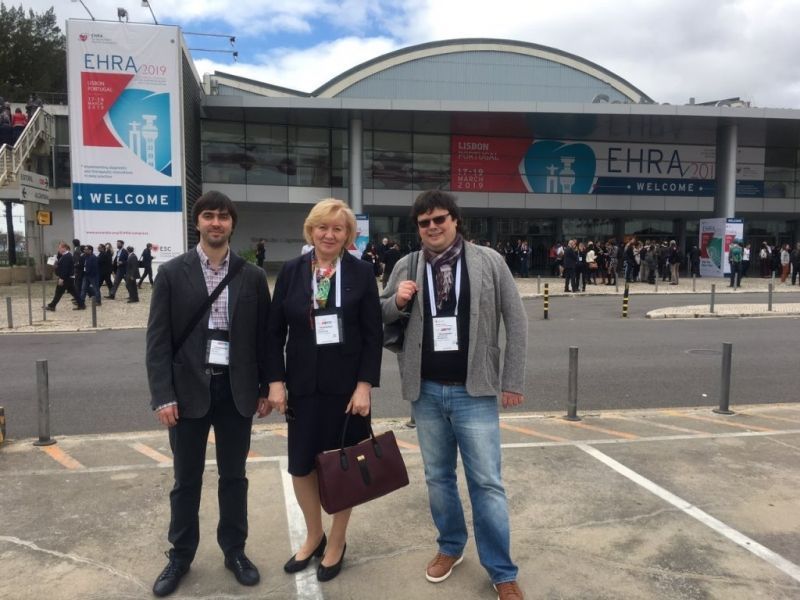
Our scientists took part in the annual Congress of the European Heart Rhythm Association (EHRA) and presented their studies about new approaches in the treatment of patients with cardiac rhythm disorders.
Tatiana P. Gizatulina, MD, PhD, Senior Scientific Researcher, Vsevolod E. Kharats, MD, PhD, Head of Arrhythmology Department and Alexander V. Pavlov, MD, PhD, an interventional cardiologist, presented 2 poster presentations.
Presentation of Tatiana Gizatulina demonstrated some results of pilot study in patients assigned to radiofrequency ablation. Our scientists confirmed that the fibrosis size of left atrium depends on left ventricular diastolic function. This state threatens health very much. Disorder of left ventricular relaxation and decrease of elasticity of its walls occurred during the period of left ventricular fast diastolic propagation in patients with atrial fibrillation. Investigation of left atrium function before radiofrequency ablation gives the cardiologists information about the extent of fibrosis and that would certainly have an impact on surgery efficiency.
Poster presentation of Vsevolod E. Kharats was “The effect of a continuous positive airways pressure in patients with obstructive sleep apnea to critical disorders of sinoatrial and atrioventricular conduction: is a pacemaker necessary?” Obstructive sleep apnea syndrome (OSAS) is one of the most common and threatening symptoms of sleeping disturbances and absolutely proven correlation between OSAS, arterial hypertension, coronary artery disease, atrium fibrillation and different cardiac conduction disturbances. It is required to implant pacemaker system to patients with heart rate deceleration. Fortunately, modern non-invasive treatment (the so-called CPAP-therapy by a device, which provides continuous positive airway pressure through respiratory ways) allows eliminating disorders without performing an open surgery in these patients. The study reflected several cases with different approaches to diagnostics and treatment in patients with OSAS and cardiac conduction disturbances.
New this year were presentations devoted to first implementation results of modern digital technologies in atrial fibrillation diagnosis (by using the Аpple Watch, for instance), and comparisons between the work of virtual arrhythmology clinic to traditional patients examinations.